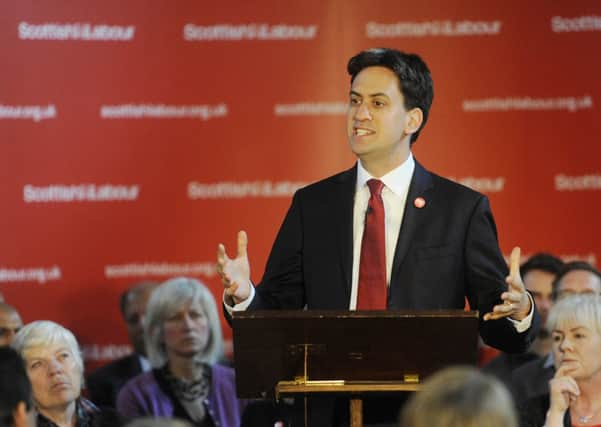Comment: UK reliant on the kindness of strangers


But instead the FTSE 100 has swept serenely on to a new all-time high. On Friday it leapt 74.41 to 7,089.77, ahead of its previous record, closing high of 7,037.67 reached last month. Judging by the deepening apprehension over the election outcome, shares should by now be cascading downwards. But instead of the much anticipated market sell-off – a new peak.
What’s driving the stock market higher has nothing to do with market sanguinity over the election outcome. Nor does it owe much to a fresh burst of economic good news: latest pointers on the manufacturing sector showed UK industrial output up by just 0.1 per cent in February, well below expectations of a 0.3 per cent gain.
Advertisement
Hide AdAdvertisement
Hide AdInstead, UK share prices have been driven higher as stock markets round the world have forged ahead. In America the S&P is back within striking distance of its record high. European equities are at 15-year peaks. And the Nikkei 225 in Tokyo briefly climbed back above 20,000 last week for the first time since 2000. With the FTSE 100 dominated by giant global companies, it has been swept up with the rest.
The good news, according to Invesco chief economist John Greenwood, is that the world is “at the beginning of an upswing” as the crisis years slowly recede. The world economy, he says, is near the end of a phase of low interest rates and could look forward to five-to-ten years in which the cost of borrowing gradually returned to normal levels. “The US has done a remarkable job in unwinding the leverage [borrowing] of the credit bubble years – a 55 per cent decline in leverage – with its debt ratio right back to 2002 levels. It’s a fundamental reason why the US economy and stock markets have performed better in the past two years.”
London has also been helped by speculation the giant Royal Dutch Shell bid for BG will fuel other mega mergers and acquisitions – a euphoria unclouded by the market’s fading memory of the mega deals of yesteryear that proved value destroyers.
Here’s a pointer to what may lie ahead here. On currency markets the mood is not so relaxed. Sterling fell 2 per cent to $1.4629 against the dollar last week to a five-year low. Foreign exchanges are braced for rising volatility as interest rates and political uncertainties came to the fore.
What sophisticated market pundits describe as “elevated concerns” over the election outcome sent measures of market volatility reaching levels not seen since the coalition government was formed in 2010. Adding to currency concerns last week were latest figures showing that the UK trade deficit widened sharply in February, with exports to the European Union in the three months to end February at their lowest since records began in 1998.
The risk is that the pound could take a hit as we get closer to the election. Add in concerns that the government might slow down the pace of cutting the deficit and we could well see a temporary sell-off in gilts and an earlier than expected rise in interest rates. Warns analyst Steven Barrow at Standard Bank: “A $1.40 level for sterling/dollar is certainly not out of reach if the election aftermath turns ugly”.
Why do sterling jitters matter? The UK is still in a pretty vulnerable financial position – we need money from overseas investors to pay for our current account and budget deficits. As fund manager BlackRock puts it, we’re “particularly reliant on the kindness of strangers for financing”.
The currency market has often set the tone as a prompt for broader market unease. That is why analysts warn “the UK political story” has still not been priced in. Opinion polls put the Conservatives and Labour neck-and-neck, with a surging SNP in pole position to strike a deal of some sort that would enable Ed Miliband to emerge as Prime Minister. The market’s appearance of relaxed ambivalence may well change as polling day nears.
Advertisement
Hide AdAdvertisement
Hide AdRecruitment firm Hays says election jitters are affecting UK business. The specialists in finance construction and technology recruiting said on Friday “it had seen more cautious decision-making among certain client and candidate segments as we get closer to the general election”. So there is a material downside risk for businesses and investors if the result is a weak and vulnerable administration – and with little appetite to pursue debt and deficit reduction: a bad outcome that would cost investors.
SUBSCRIBE TO THE SCOTSMAN’S BUSINESS BRIEFING